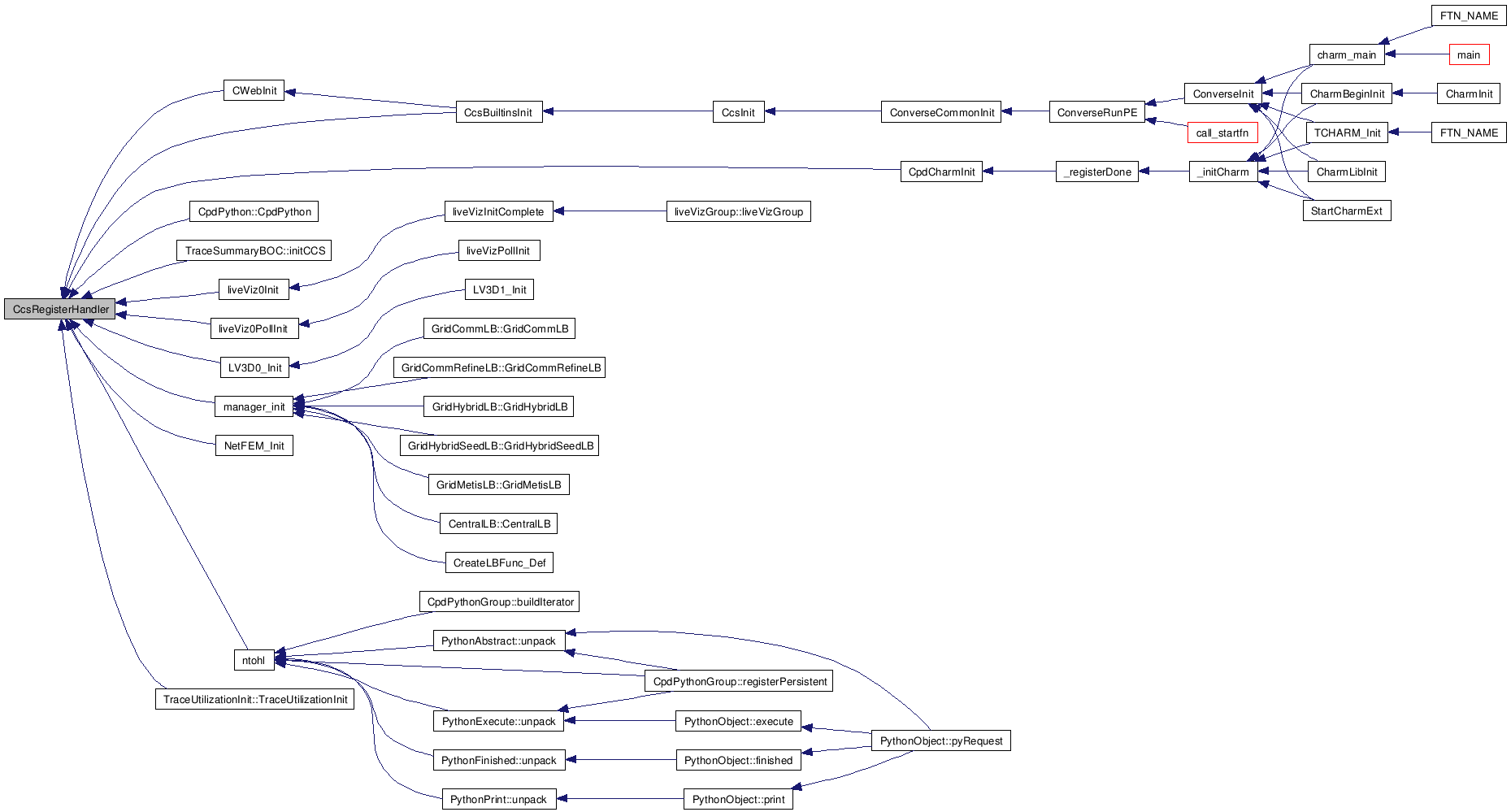

Go to the source code of this file.
Data Structures | |
| class | CkCcsRequestMsg |
| Message sent from CCS to callbacks. More... | |
| class | CkDataMsg |
| Very generic message type: contains a bunch of bytes. More... | |
Functions | |
| void | CcsRegisterHandler (const char *ccs_handlername, const CkCallback &cb) |
| When a CCS request comes in from the network with this handlername, call this callback with an appropriate CkCcsRequestMsg. | |
| void CcsRegisterHandler | ( | const char * | ccs_handlername, | |
| const CkCallback & | cb | |||
| ) |
When a CCS request comes in from the network with this handlername, call this callback with an appropriate CkCcsRequestMsg.
You must eventually call CcsSendDelayedReply(msg->reply,...) each time this callback is activated.
Unlike the regular converse CcsRegisterHandler (in conv-ccs.h), this call need only be made once, on processor 0, and all processors will be able to respond to the CCS request.
Definition at line 555 of file ckcallback.C.
References _ckcallbackgroup.
Referenced by CcsBuiltinsInit(), CpdCharmInit(), CpdPython::CpdPython(), CWebInit(), TraceSummaryBOC::initCCS(), liveViz0Init(), liveViz0PollInit(), LV3D0_Init(), manager_init(), NetFEM_Init(), ntohl(), and TraceUtilizationInit::TraceUtilizationInit().

 1.5.5
1.5.5